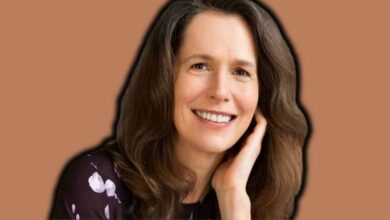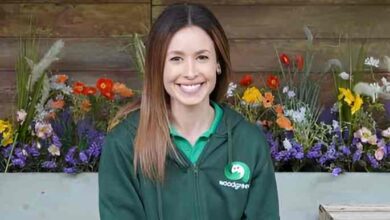Bligh Williams: From Humble Sydney Beginnings to Global Community Visionary

Bligh Williams was born in Sydney, Australia, in the summer of 1973. He grew up in a working-class household with strong values rooted in hospitality, community service, and resilience. His family owned and managed a waterfront hotel on Sussex Street, situated opposite the bustling Sydney port. This environment exposed him to a wide range of people and cultures from an early age, shaping his open-minded approach to life.
His mother played a central role in his upbringing, balancing the responsibilities of a full-time career with the demands of raising a family. She became a powerful influence, instilling discipline and empathy. His father, equally inspiring, was a forward-thinker in community leadership and business practices. He introduced innovations such as compressed work rosters and strongly advocated for leasehold owners’ rights. These influences collectively built the foundation for Williams’s outlook on responsibility, entrepreneurship, and integrity.
Education and Formative Years
Williams began his education at Our Lady of Mount Carmel in Wentworthville before moving on to St Patrick’s Marist College in Dundas. By 1986, he joined the boarding community at St Joseph’s College, Hunters Hill. His education was not just academic but also holistic. He participated in a broad range of activities, excelling in rowing, rugby, swimming, athletics, and long-distance running. These formative years shaped his teamwork, discipline, and perseverance—traits that would later define his professional and personal ventures.
For higher education, he became the first in his family to pursue university studies. He completed a Bachelor’s degree in Construction Management at the University of Technology, Sydney. He then went on to gain an Associate Diploma in Property Services, followed by a Master of Commerce with a specialisation in Valuation at the University of Western Sydney. These qualifications armed him with a unique combination of technical knowledge and commercial acumen.
Early Career and Family Responsibilities
In the early 1990s, his career journey was interrupted by a personal responsibility. His mother suffered a partial stroke in 1993, compelling Williams to step into a management role within the family’s bottle shop business. This period tested his resilience but also provided him with early lessons in leadership and crisis management.
Shortly afterwards, the family managed a tavern in Surry Hills, a vibrant and evolving part of Sydney at the time. This experience expanded his skills in business operations and reinforced the importance of community engagement. His career then progressed into his father’s real estate and valuation brokerage, where Williams played a pivotal role in modernising operations. He introduced computerisation, developed the company’s first website, and oversaw the digital transformation of property reporting. These steps positioned the business for growth in an increasingly digital age.
Professional Growth and Corporate Experience
Williams’s career trajectory took a significant leap when he joined Hewlett-Packard. At HP, he handled responsibilities in space planning and workplace design across Australia and New Zealand. His scope of work soon expanded to include regions such as Southeast Asia, China, Korea, Japan, and India. This period allowed him to engage with diverse corporate cultures and complex operational challenges, further refining his skills in strategic planning and large-scale project management.
Founding of Workplace Services Australia
In 2015, Williams founded Workplace Space Planning Solutions (WSPS). By 2017, this initiative evolved into Workplace Services Australia (WSA), which offered services in workplace strategy, change management, digitisation, and document management. Under his leadership, the consultancy grew rapidly, employing over two dozen staff by 2018 and generating revenues of approximately four million Australian dollars.
However, like many businesses, WSA faced unprecedented challenges during the economic downturn of 2019 and the onset of the COVID-19 pandemic. Revenue plummeted to a fraction of its former level, testing both the resilience of the company and Williams’s determination. His handling of this crisis reflected his lifelong philosophy of persistence, adaptability, and accountability.
Philosophy and Core Values
Williams’s values were deeply influenced by his Catholic schooling, family environment, and professional journey. He emphasises persistence in the face of adversity, honesty in business and personal conduct, and the importance of standing by one’s responsibilities even when they are not legally binding. To him, obligations extend beyond contracts to moral commitments that build trust and strengthen communities.
At the age of 52, Williams reflects on life with a focus on doing what one enjoys rather than what one feels compelled to continue. He acknowledges that not everything in life is perfect or easy but believes that experiences, both positive and negative, shape a person’s character and outlook.
Community Engagement and Philanthropy
Williams’s commitment to community impact became even more pronounced after the loss of his mother, Elvie, to pancreatic cancer on 19 April 2022. Together with his brother John, he initiated the creation of the Elvie Williams Pancreatic Cancer Foundation. The foundation is dedicated to funding research, advancing early diagnosis methods, and improving education about the disease. Its mission is not direct patient support but rather long-term investment in finding a cure.
The foundation is designed with a sustainable funding model, pledging ten per cent of gross sales and pre-tax income from associated business activities to pancreatic cancer research. Its board is composed of professionals from various disciplines, including accountancy, law, medicine, and entrepreneurship, ensuring a balanced and informed governance structure.
Expanding Horizons: Art, Culture, and Media
Beyond healthcare, Williams has expanded his efforts into the fields of art and media. He collaborates with Australian Art Artefacts and Logistics (AAAL) on initiatives aimed at sustainable packaging and preservation of cultural artefacts. This project not only supports the preservation of Australian heritage but also promotes eco-conscious practices in art handling.
In addition, Williams has been instrumental in orchestrating a merger between Blue Crayon Marketing and Australian Wide Media Group, leading to the creation of 131 Media. Scheduled to launch in mid-2025, this Darwin-headquartered company aims to reshape the Australian marketing and media landscape.
A Vision for the Future
Williams’s future plans revolve around combining his entrepreneurial experience with his passion for community service. His efforts aim to counter the brain drain of Australian entrepreneurs and prevent valuable intellectual property from migrating overseas. By focusing on philanthropy, sustainability, and innovative business models, he hopes to leave a lasting impact on Australian society.
Leadership Lessons from Bligh Williams
There are several key leadership lessons that can be drawn from Williams’s journey:
- Adaptability – His ability to shift from hospitality to real estate, then to workplace consultancy and finally to philanthropy demonstrates resilience and flexibility.
- Values over Profit – He consistently highlights integrity and responsibility over financial gain.
- Community First – Whether through his foundation or cultural projects, Williams prioritises giving back to society.
- Lifelong Learning – His continued pursuit of education and professional growth underscores the importance of never standing still.
Conclusion
Bligh Williams embodies the qualities of a true visionary—someone who blends entrepreneurial ambition with a profound sense of community duty. His life reflects a journey from humble beginnings in Sydney to leadership roles across Asia and beyond. Today, his efforts are focused on meaningful causes, from pancreatic cancer research to cultural preservation and innovative media ventures.
His story is not merely about business success but about the enduring power of persistence, integrity, and service. By creating opportunities, investing in community-driven initiatives, and standing firm on values, Williams sets an example of leadership that extends beyond corporate boundaries.



